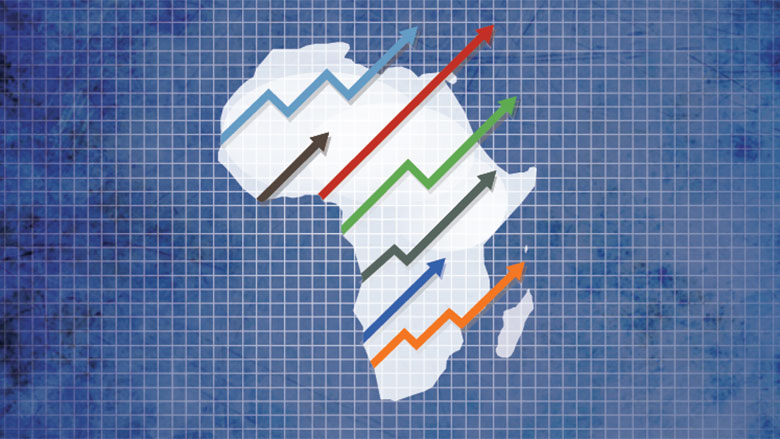Benin, Côte d’Ivoire, Ethiopia, Rwanda, and Tanzania are on course to post some of the strongest economic growth rates globally – a show of resilience in the face of troubling global headwinds.
A robust combination of domestic policy reforms, increased investment and strategic sectors will mark those nations’ outstanding economic outcomes, according to the African Economic Outlook 2023.
The countries are bright spots in a continental economy still shaking off residual pandemic shocks. Amid a flurry of global and local challenges, African economies are exhibiting impressive overall resilience, however, with average growth predicted to stabilise at 4% in 2023-24, surpassing the estimated 3.8% in 2022.
“The forecast for 2023 has been maintained as predicted in the January 2023 edition of Africa’s Macroeconomic Performance and Outlook (MEO) published by the African Development Bank Group” reads the report in part.
“However, due to expected slight improvements in medium-term global and regional economic conditions — mainly underpinned by China’s re-opening and slower pace of interest rate adjustments — the forecast for 2024 has been revised up by 0.4 percentage points relative to the January 2023 MEO projection.“
Last year’s growth deceleration, down from 4.8% in 2021, was primarily attributed to tightening global financial conditions and supply chain disruptions exacerbated by the geopolitical strife over Ukraine and the lingering impacts of the COVID-19 pandemic.
However, the continent’s economic performance superseded most world regions, with an impressive return to pre-pandemic performance anticipated for the five nations listed as standout growth cases. Benin, Côte d’Ivoire, Ethiopia, Rwanda, and Tanzania are all projected to rejoin the world’s top ten fastest-growing economies in 2023-24.
Africa’s growth is expected to surge to 4% in 2023 and further consolidate at 4.3% in 2024, painting a picture of continental economic tenacity, despite the headwinds.
Persistent fragilities in supply chains, climate change and escalating global inflation are some of the key issues that economies worldwide are battling. These remain potential threats to the growth trajectory in Africa, too.
Across Africa, growth prospects differ considerably, with Central Africa – predominantly a commodity exporter – likely to face a slowdown from an estimated 5% in 2022 to 4.6% in 2024 due to a downturn in commodity prices.
In contrast, East Africa foresees a growth increase from 4.4% in 2022 to 5.8% in 2024, benefitting from a decline in commodity prices and diversified production structures.
North Africa’s growth is projected to ascend from 4.1% in 2022 to 4.4% in 2024, fuelled by robust recoveries in Morocco and Libya. Southern Africa, however, will see a deceleration from 2.7% in 2022 to 1.6% in 2023, primarily due to ongoing challenges in the region’s largest economy, South Africa.
Conversely, West Africa anticipates an upswing in growth from 3.8% in 2022 to 4.2% in 2024, driven by higher growth in the region’s smaller economies.
Despite facing uncertainties, the growth outlook in tourism-dependent economies, oil-exporting countries, resource-intensive economies, and non-resource-intensive economies presents a varied picture.
While tourism-dependent economies brace for a slowdown, oil-exporting countries foresee a boost from above-trend oil prices.
Oil-exporting countries are projected to strengthen their growth from an estimated 4 per cent in 2022 to an average of 4.2 per cent in 2023 and 2024, boosted by high oil prices and improved oil production.
Tourism-dependent economies are projected to see their growth decline from an estimated 8.4 per cent in 2022 to a still impressive 4.9 per cent in 2023 and 4.4 per cent in 2024, reflecting an abating base effect and growth slowdowns in important tourist source markets, especially Europe and North America.
Meanwhile, resource-intensive economies are projected to see their growth decline from an estimated 3 per cent in 2022 to 2.4 per cent in 2023, with a recovery to 3.5 per cent in 2024.
The growth deceleration in 2023 is largely attributed to limited diversification and lower prices of essential commodities, notably minerals, amid weak global growth.
Conversely, non-resource-intensive economies are projected to sustain their resilience and grow from an estimated 4.4 per cent in 2022 to 5 per cent in 2023 and 5.6 per cent in 2024 – making an important point that an emphasis on service, agriculture and diversification is becoming a driving growth and social change on the continent. Non-resource-intensive economies as a group also rebounded most strongly from the effects of COVID-19.
The projected higher growth underscores economic diversification’s importance in weathering the effects of exogenous shocks, the report notes.
bird story agency





